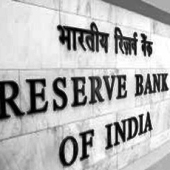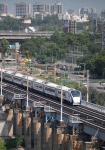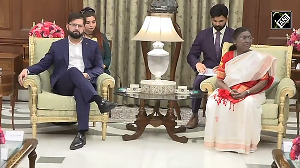 The government said on Monday inflation was driven by a surge in commodity prices and the monetary policy had only a limited role in managing the price rise.
The government said on Monday inflation was driven by a surge in commodity prices and the monetary policy had only a limited role in managing the price rise.
"It is food inflation which is a substantial part of inflation now and, therefore, there is not much that can be done by other measures, including monetary policy instruments," finance secretary Ashok Chawla said after a high-level coordination committee meeting on financial markets, comprising government officials and financial sector regulators.
Food inflation has touched a 10-year-high of 19.95 per cent and the inflation rate based on the Wholesale Price Index, which was estimated at 4.78 per cent, is expected to cross 6 per cent by the end of the month.
Among other things HLCC, headed by Reserve Bank of India governor D Subbarao, reviewed the developments in financial markets.
RBI is expected to raise policy rates and the cash reserve ratio, the proportion of deposits that banks set aside.
The government and RBI have been worried over the tardy growth in credit, the slowest rise in the last decade. But following the payment of the third instalment of advance tax, banks -- which were parking over Rs 1 lakh crore on a daily basis through the reverse repo window -- have seen a decline in the surplus cash level to around Rs 35,000 crore (Rs 350 billion), the lowest level since April.
Market players, however, said that the reduction in the level of funds parked through the reverse repo window was not an indication of lower liquidity in the system. Instead, banks are redirecting the excess funds for short-term loans and earning higher returns.
According to an assessment carried out by the finance ministry, while the government borrowings are expected to be within the budgeted level of Rs 4,51,000 crore (Rs 4,510 billion) this year, a substantial reduction was difficult even during the next financial year.
"This along with a pick-up in credit demand next year could put pressure on interest rates and test the liquidity levels," an official said.
Apart from reviewing the overall situation of the financial market and the impact of liquidity in overseas markets, HLCC also discussed the functioning of credit rating agencies.
Among other issues discussed were ways to tighten the supervision and functioning of the agencies. The task had been assigned to the Securities and Exchange Board of India (Sebi) though RBI has also been reviewing the performance of the agencies closely.
Apart from Chawla and Subbarao, the government's chief economic advisor Kaushik Basu, Sebi chairman C B Bhave and Insurance Regulatory and Development Authority chairman J Hari Narayan attended the meeting.
After the meeting, Chawla and Bhave also said that the issue of trading time was not to be decided either by the government or the capital markets regulator but by the stock exchanges.









 © 2025
© 2025